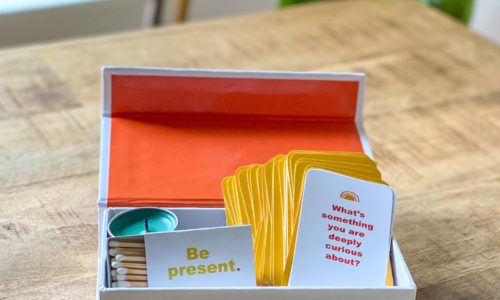1) Give your children more unstructured and unsupervised outdoor playtime with friends of various ages.
“Play is nature’s way of teaching children how to solve their own problems, control their own impulses, modulate their emotions, see from others’ perspectives, negotiate differences, and get along with others as equals. There is no substitute for play as a means of learning these skills.” (Free to Learn by Peter Gray, page 175.)
Peter Gray, an evolutionary biologist, along with other researchers theorize that the increase in depression, violence, suicide and addiction amongst teenagers is a direct result of the decrease in unsupervised, free play time that children in America have experienced since the 1950’s. His book is provocative and probably important to read as a parent (whether you agree fully or not with his portrayal of the church) especially if you have concerns about video games and violence acted out in playtime or in video games. Interesting.
2) Commit to family meetings. Talk about personal and family goals. Write your family plan. Post your family’s rallying cry on bathroom mirrors. If you want guidance on how to get going, email me. I’d love to talk.
3) Get more curious. Nothing is more exciting than being deeply curious with your children. They are curiosity geniuses and to see grown ups being curious makes their eyes open wide with joy and humor. I love reading Tim Ferris’s work (4 Hour Chef, etc.,) because he makes me want to learn – “meta-learning” is his thing. He says to “ABL: Always Be Learning.” I love that. Each and every day, learn something, think new thoughts and ask a new question. Be sure to share your learning with your children. They need to see you not as the “know it all” but as a true student of life. Curiosity is contagious, energizing and totally fun. How freeing not to feel you have to have all the answers. Phew.
4) Practice optimism. It is a skill. I’m not talking about the Pollyanna-annoying-oblivion that makes no sense; but a grounded perspective that seeks a bright side in daily occurrences. This kind of optimism leads one ultimately to see hope even through the darkness and inevitability of tragedy. Some people are predisposed toward optimism but it really is something to learn through simple daily practice. I have a friend who plops down to the floor and does 5 push-ups every time she thinks a negative thought about herself. Her husband found her in the kitchen doing push-ups and she said, “Sorry, I just told myself I’m fat and ugly.” We all must practice thinking optimistically if we mean to be truly healthy people. Like curiosity, it is contagious. You will impact your children’s lives quite powerfully as they, too, will learn to see life as good even in difficulty. This is an act of sowing the seeds of resilience.
5) Be a rocket scientist. Join in the fun of learning about the grand laws of physics including gravity, velocity and acceleration. Look at the stars; get a microscope and watch cells move. Be mystified and awed by this universe – big and small. Be a student of the galaxy and plan a day for you and your family to build a rocket ship or a Rube Goldberg machine; visit a planetarium or lie in your backyard and look at the stars with a star map to guide you. Or, just talk to your Eagles on Fridays about their experiments and ask them to teach you about what they learned. This summer I re-read Richard Feynman’s Six Easy Pieces: Essentials of Physics Explained by Its Most Brilliant Teacher and I highly recommend it. http://www.amazon.com/Six-Easy-Pieces-Essentials-Explained/dp/0465025277
Onward!


